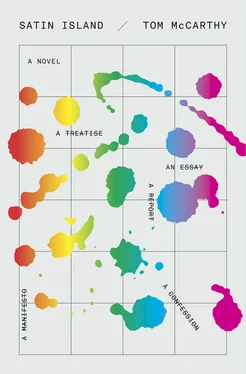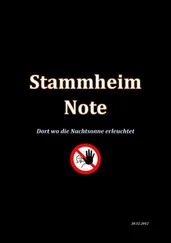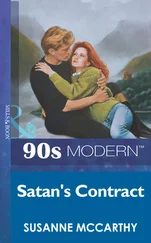6.6I kept thinking about the dead parachutist. The circumstances of the incident recalled a chapter from my own childhood. I can pinpoint, with complete precision, the episode that set me on my career path: it occurred when, at the age of seven, I happened to watch, one rainy Sunday afternoon, a documentary — an old one, from the early sixties — about South Pacific islanders. These people, Vanuatans, engaged once a year in a peculiar ritual: the men would climb a high and rickety-looking wooden tower and, goaded on by their womenfolk, who chanted songs of exhortation, leap from the top of this, head first. They wore vines round their ankles, cut to such a length that they would tauten just before the men’s torsos crashed into the earth below. After watching the documentary, I’d climb up my younger sisters’ bunk-bed and, fastening T-shirts and pyjamas round my ankles and the bedpost, leap repeatedly, head first, towards the carpet. If a Vanuatan hesitated or refused a dive, his womenfolk would whip themselves with thorns and nettles, to shame him into action; I made my sisters whip themselves with flannels. I performed the ritual for several days, until a dislocated shoulder and my parents’ veto brought an end to it — but by then, the documentary had done its work. From that time onwards, when people asked me what I wanted to be when I grew up, I’d tell them: anthropologist .
6.7So, with this parachutist: I’d already, as I mentioned, figured out the crime’s location (the sky). The question remained, though, of timing. In other words: at what precise point in time had he actually been murdered? When the equipment had been sabotaged? If he’d survived the fall — been greeted by a sudden upgust of ground-wind, say, or landed in soft, deep snow, or in the branches of a fir-tree that, pliant and supple, had broken his fall incrementally as he tumbled through them, each layer shaving a little more velocity away until the last layer rolled him gently onto needle-covered earth — if any of these miracles (of which popular lore is, after all, quite full) had taken place, the act of sabotage wouldn’t have constituted murder. Yet, as at least one article I read stated, the man’s death was, in this instance — in this country devoid of tall pine trees, this terrain quite unamenable to upgusts, this snow-less season — a foregone conclusion from the moment the cords had been cut. Thus, although he hadn’t actually been killed until the moment of his impact, to all intents and purposes, he had. For the last hours — days, perhaps — of his life, he had (this is how Schrödinger would formulate it) been murdered without realizing it. I tried to picture him walking around in that state: already effectively dead, his body and his consciousness, his experiences, and, beyond these, his experience of his experiences — his awareness of himself, his whole reality — mere side effects of a technical delay, a pause, an interval; an interval comparable, perhaps, to the ones you get down phone-lines when you speak long distance or on Skype: just the hiatus created by the passage of a command down a chain, the sequence of its parts; the interim between an action and its motion, like those paralytic lags that come in hideous dreams.
6.8The Great Report: this needs explaining. It was Peyman’s idea. When he first hired me, as he shook my hand to welcome me onboard, he fixed me with his gaze and said: U., write the Great Report. The Great Report? I asked, my hand still clenched in his; what’s that? The Document, he said; the Book. The First and Last Word on our age. Over and above all the other work you’ll do here at the Company, that’s what I’m really hiring you to come up with. It’s what you anthropologists are for, right? Could you elaborate? I asked. Well, he replied, finally letting my hand go so that he could gesticulate with his; you don your khakis, schlep off to some jungle, hang out with the natives, fish and hunt with them, shiver from their fevers, drink strange brew fermented in their virgins’ mouths, and all the rest; then, after about a year, they lug your bales and cases down to the small jetty that connects their tiny world to the big one that they kind of know exists, but only as an abstract concept, like adultery for children; and, waving with big, gap-toothed smiles, they send you back to your study — where, khakis swapped for cotton shirt and tie, saliva-liquor for the Twinings, tisane or iced Scotch your housekeeper purveys you on a tray, you write the book: that’s what I mean, he said. Not just a book: the fucking Book . You write the Book on them. Sum their tribe up. Speak its secret name.
6.9His phone rang at this point. He took the call, and spoke in German (fluent) for five minutes. When he’d finished, he looked up at me and asked me if I saw what he was driving at. I do, I told him. But, I started — then I faltered. But what? he asked. Your version, I said … vision, I mean, depiction — then, striking upon the right word— characterization , of the anthropologist … What of it? he asked. Well, I said, it might have been an accurate one a century ago. But now there are no natives — or we ’re the natives. I mean … I know, I know all that stuff, he said, cutting me off. I’ve read your clubbing-tome: kaleidoscopes; personae; passing out in toilets; it’s all good. And it’s exactly the situation you describe, he carried on, that makes our era’s Great Report all the more necessary. Shifting tectonics, new islands and continents forming: we need a brand-new navigation manual. But also, I tried to tell him, now there is no study, with its housekeeper and Scotch and tisane. I mean, there are universities … Forget universities! he snorted, interrupting me again. These are irrelevant; they’ve become businesses — and not even good ones. Real businesses, though, he said, his hand describing in the air above his desk a circle that encompassed the whole building: these are the forge, the foundry where true knowledge is being smelted, cast and hammered out. You’re right, U.: there is no tranquil study. But the Great Report won’t be composed in a study; it will come out of the jungle, breaking cover like some colourful, fantastic beast, a species never seen before, a brand-new genus, flashing, sparkling— fulgurating —high above the tree-line, there for all to see. I want it to come out of the Company. We’re the noblest savages of all. We’re sitting with our war-paint at the spot where all the rivers churn and flow together. The Company, he repeated, his voice growing louder with excitement, is the place for it to come from; you, U., are the one to write it. He carried on looking straight at me, into me. He was smiling, but the way his dark eyes fixed me made it clear that, smile or no smile, he was deadly serious. What I want you to do, he said, is name what’s taking place right now. To name it? I repeated; like the princess does with Rumpelstiltskin in the fairytale? Yes, he said: exactly. What do you want this Great Report to look like? I asked. What form should it take? To whom should it be addressed? These are secondary questions, he said. I leave it to you to work them out. It will find its shape.
6.10Had it, when these events ( q.v .) took place, found its shape? It was finding it —finding it in the same way we might say that we’re looking for an object rather than that it’s lost or nonexistent. Shapes were happening inside my thought; or, rather, shap ings , a preliminary set of shifts and swirls, coherences and separations of the type that, in their overall movement, seem to promise shape and structure somewhere further down the line. Frames, contexts, modes, tones, formats would suggest themselves — pipe up, step forwards, as though volunteering for a task — then, no sooner than they’d made their willingness and presence known to me, fall silent again, slink back into the crowd and disappear. But these spectral presences, and the promise they (like all ghosts) carried that they might return, helped add momentum to all my enquiries, each of my dossiers, no matter how isolated and idiosyncratic their subject-matter seemed: after all, might this or that one not turn out, in addition to whatever other function it performed, to be the spur to set the Great Report, by happy accident, agalloping? Although I had done nothing concrete to begin the thing, simply being under starter’s orders in this way lent a background radiance, a promise of significance, to everything I did. At the same time, it sent my general levels of anxiety, already high, still higher.
Читать дальше












